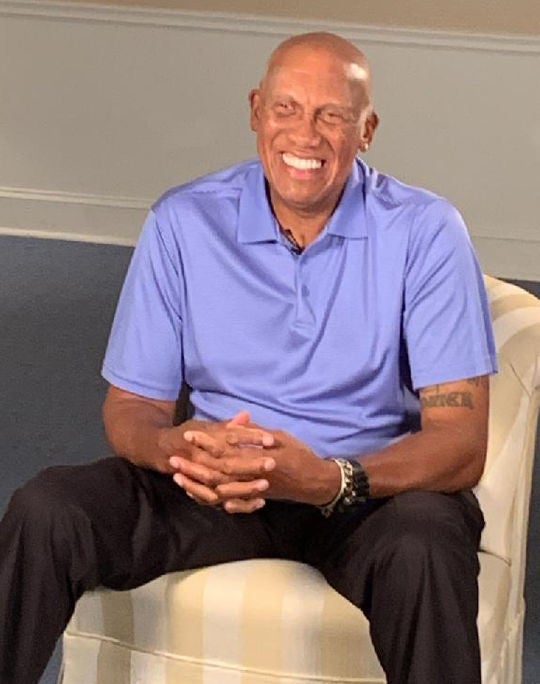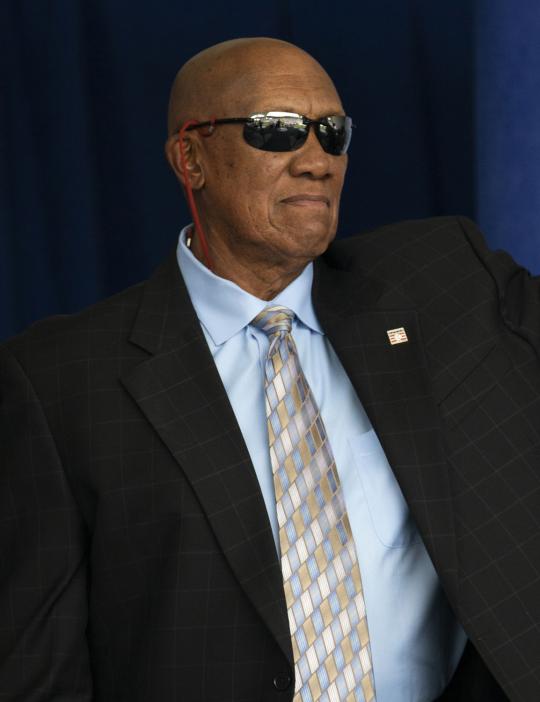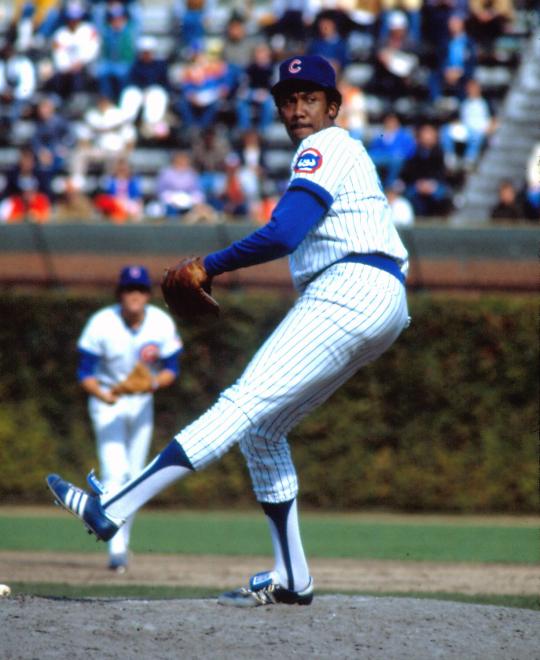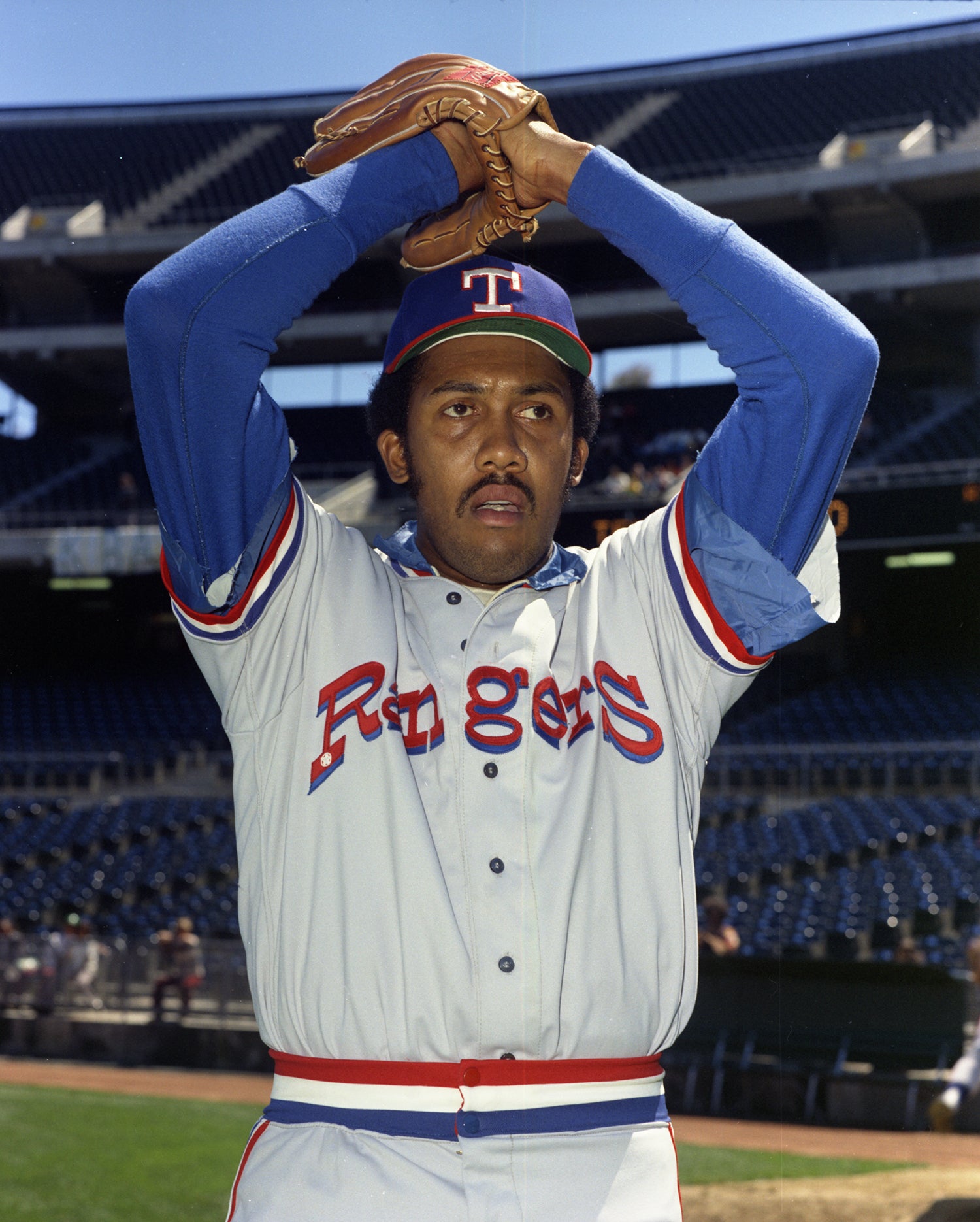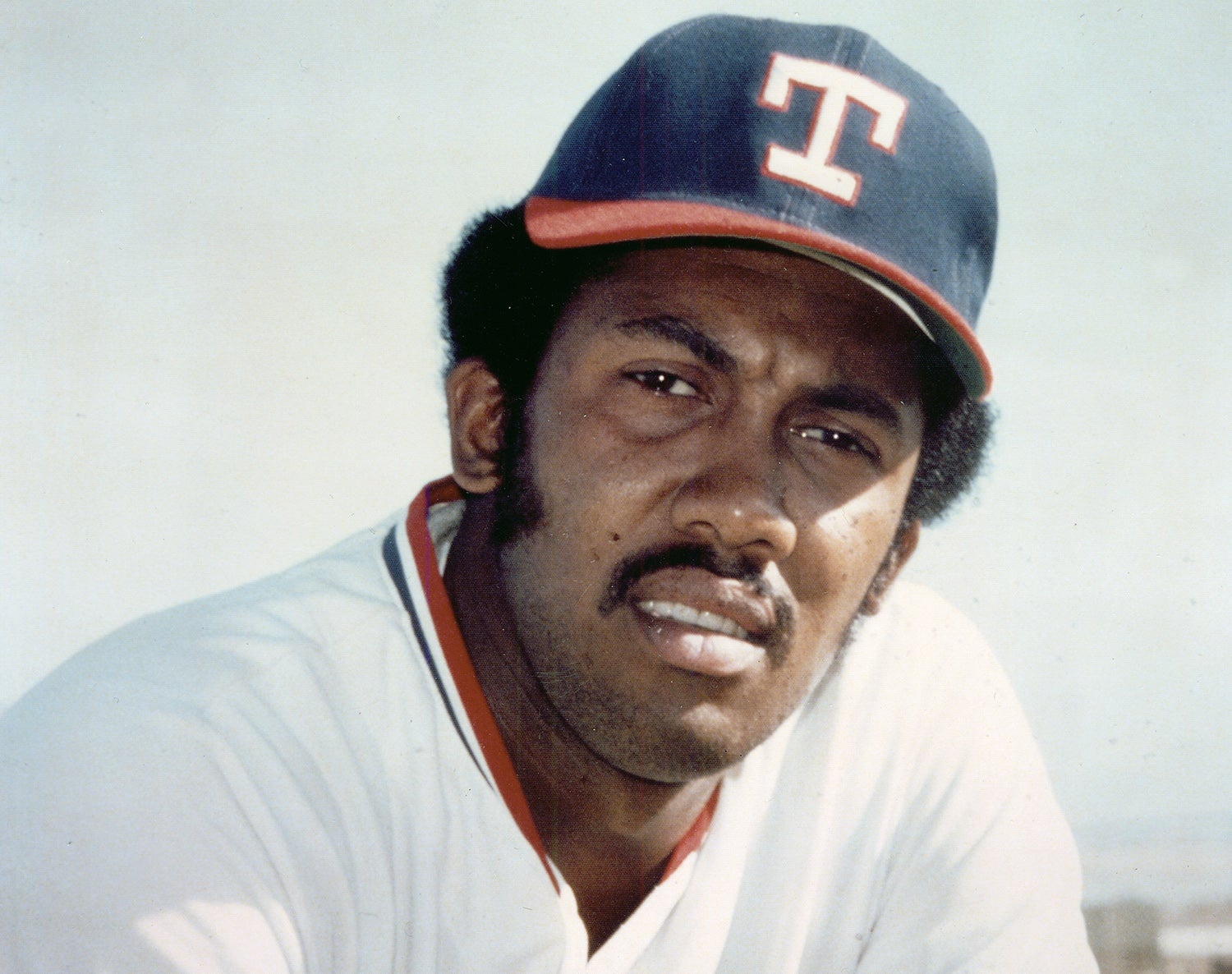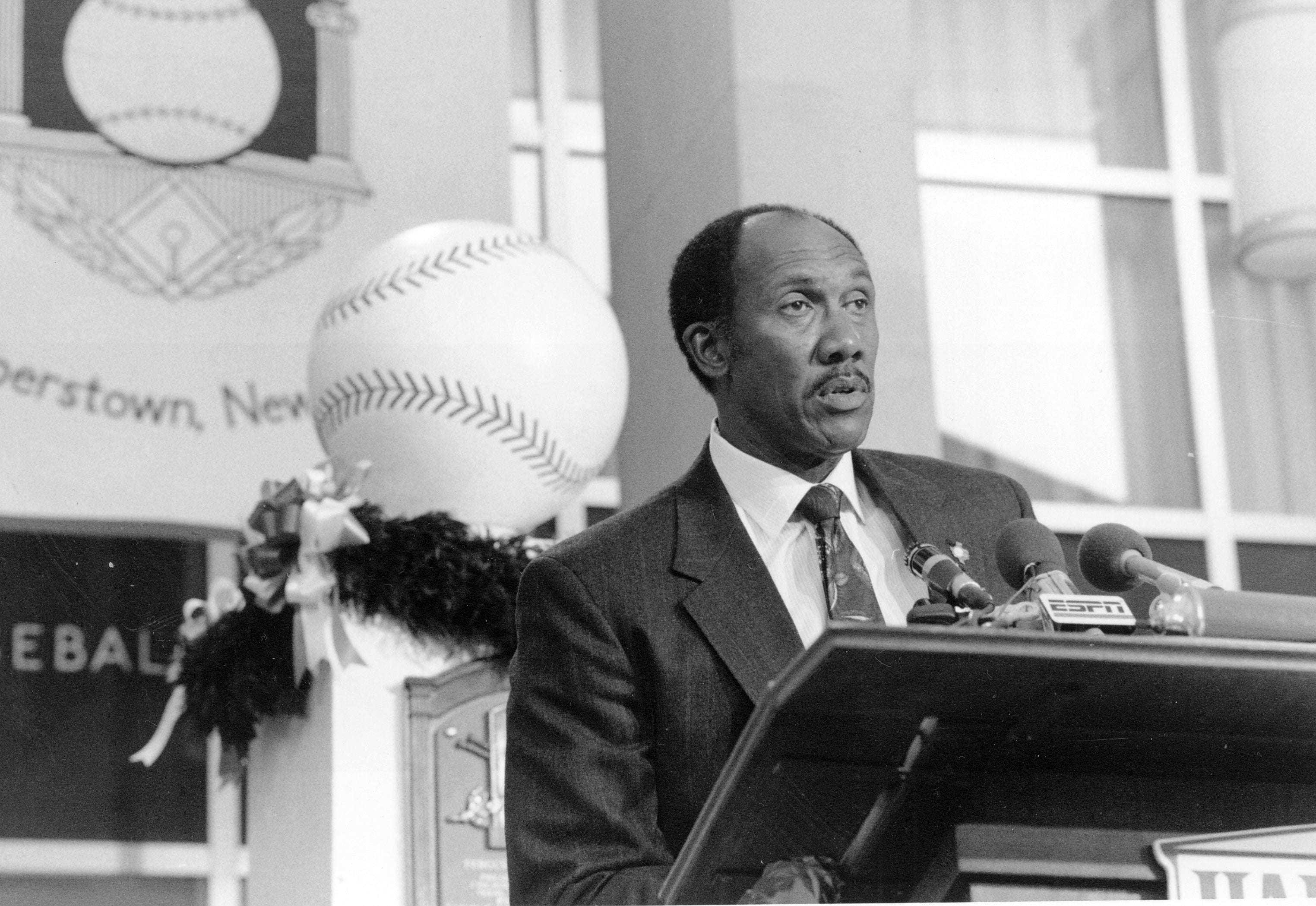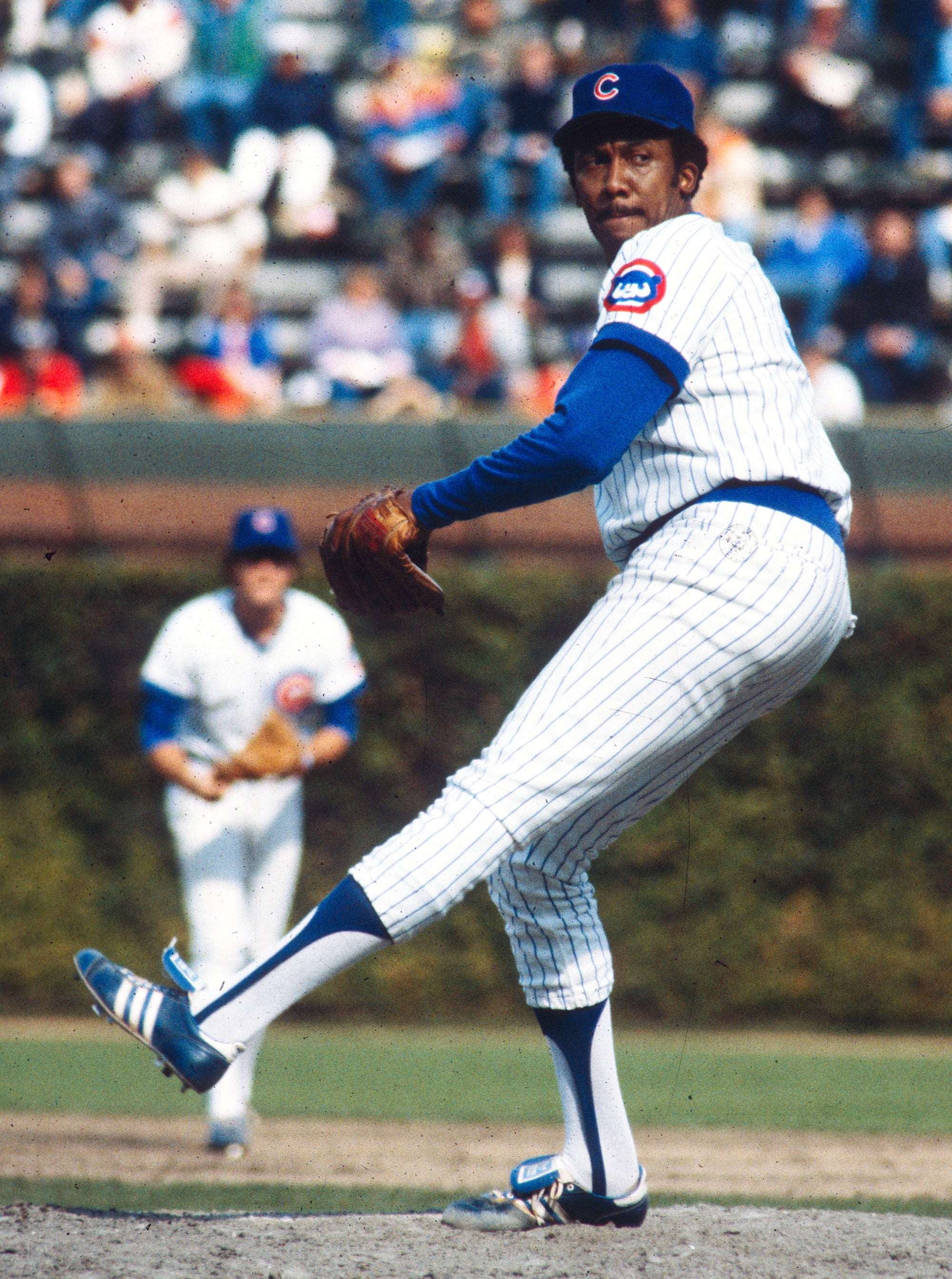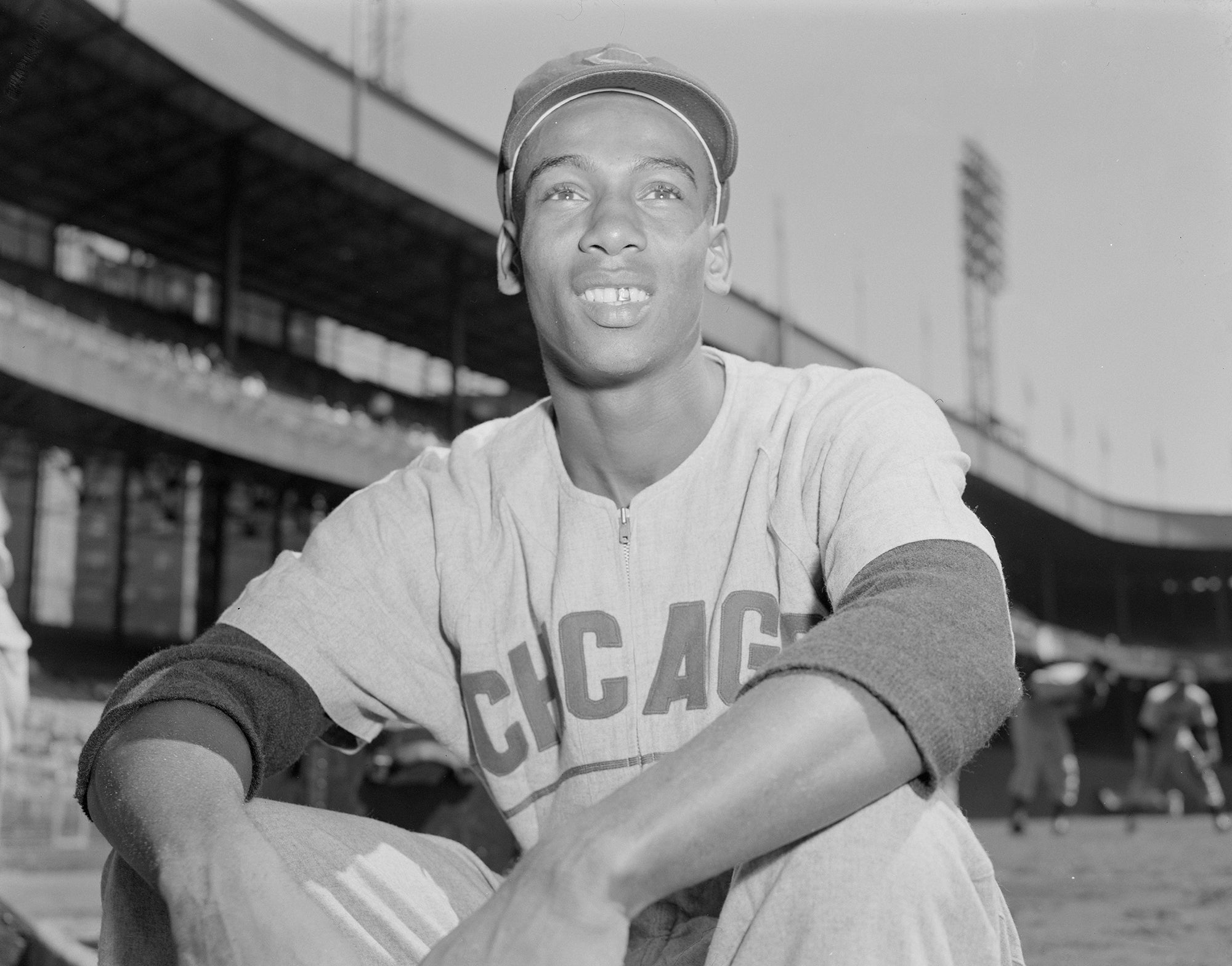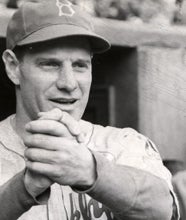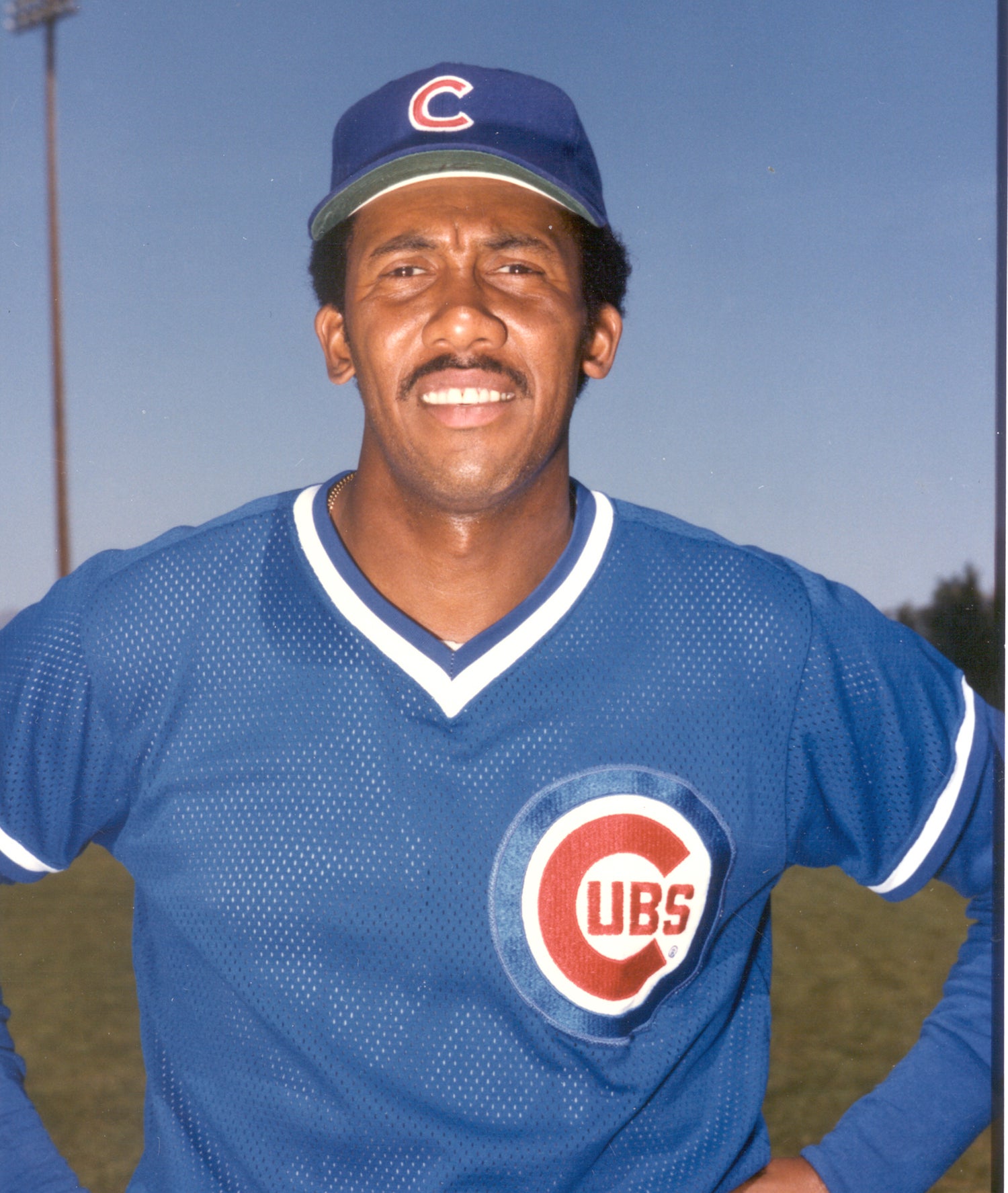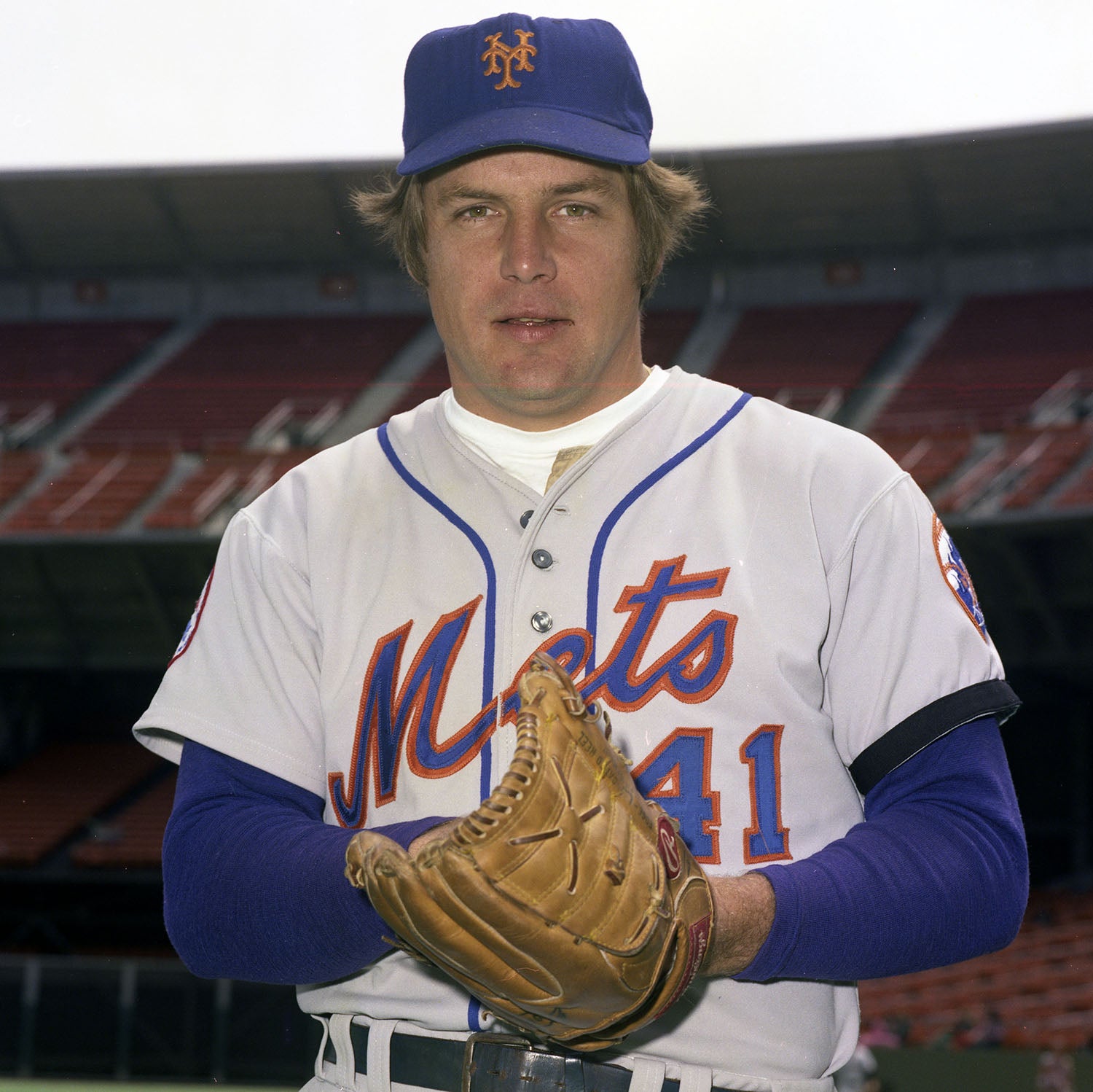- Home
- Our Stories
- Jenkins reflects on anniversary of his Cy Young season
Jenkins reflects on anniversary of his Cy Young season
Fifty years ago, Fergie Jenkins had just won 20 games for the fifth consecutive season, but thought his chances of being honored with his first Cy Young Award were mixed at best.
But 1971 turned out different.
Jenkins, the Chicago Cubs righty and future Hall of Fame Class of 1991 member, was coming off a 1971 season in which he led the National League in wins (24), games started (39), complete games (30) and innings pitched (325), while finishing second in strikeouts (263).
Cubs Gear
Represent the all-time greats and know your purchase plays a part in preserving baseball history.
On Nov. 3, 1971, the Baseball Writers’ Association of America announced that Jenkins, 28, had captured that year’s NL Cy Young Award.
“That was a good year for me. Winning the Cy Young Award is really important because of the fact that you propel your team when you win ball games, which makes your team even better,” said Jenkins, recalling the only year he won the prestigious pitching honor, during a recent interview one week after attending the 2021 National Baseball Hall of Fame Induction Ceremony on Sept. 8.
Jenkins, who won 284 games over a 19-year big league career with the Phillies, Cubs, Rangers and Red Sox, returned to Cooperstown as the celebrity host for the Pathfinder Village-Baseball Hall of Fame Golf Invitational, which was held Sept. 15 at the Leatherstocking Golf Course in Cooperstown.
“It all started at Spring Training when I came to Scottsdale (Ariz.) in great shape and then I was the Opening Day starter,” said the 6-foot-5 workhorse. “And Leo Durocher, our manager in 1971, was always particular about his pitching staff. We had Kenny Holtzman, Bill Hands and Milt Pappas. But the nice thing about it was Leo, after we didn't win in 1969, he says, ‘Hey, in 1970 and 1971 we’ve got to start showing the National League that we deserve recognition.’
“Leo was tough as nails. Hated excuses. He’d say, ‘Don't blame somebody else if you don't pitch well or don't turn a double play or a ball gets hit in the gap. It's up to you. You’ve got the ball.’”
According to Jenkins, it was Durocher – who was elected to the Hall of Fame in 1994 – who gave him the opportunity to become a successful starting pitcher at the end of the 1966 season.
“He said he’d seen me enough out of the bullpen so he gave me some starts. And then I won the job in 1967,” Jenkins said. “There were five pitchers he took into the room at the end of the 1966 season: Joe Niekro, Rich Nye, Kenny Holtzman, Bill Hands and myself. He said, ‘You five pitchers come to Spring Training in 1967 and battle to be the four guys to be in the starting rotation.’ And I end up having good spring and being the Opening Day pitcher against my former team, the Phillies, and my former teammate, Jim Bunning.”
In 1971, Jenkins – in the fifth year of a six-season stretch where he won at least 20 games every year – walked only 37 in 325 frames.
“There were a lot of reporters commenting on that at the time, that I didn't walk anybody. Of my 39 starts, I had 16 games where I didn’t walk a person,” he recalled. “When you give up walks that could be a disaster from time to time, so I just tried not to walk people.”
Despite Jenkins’ success and the contributions of future Hall of Famers Ernie Banks and Billy Williams, the Cubs finished 1971 with an 87-74 record, good for third place in the 10-team NL behind the Pirates (97-65) and Cardinals (90-72).
For Banks, 1971 was the last year of a 19-season career spent calling Wrigley Field home. The shortstop-turned-first baseman retired with 512 home runs.
“I roomed with Ernie for a number of years and he always talked about the game; never talked about himself. Just went out there and wanted to do his job,” Jenkins said. “When he hit his 500th home run and everybody congratulated him and all sudden this grown man, tears are coming down my face.
“He was a gentleman, never talked bad about anybody, wanted to play the game, and loved to put that Cub uniform on and run across the field.”
Including his win in 1971, Jenkins finished in the top six in Cy Young Award voting six times, placing second in 1967 and 1974 and third in 1970 and 1972.
Jenkins was near his home in Chatham, Ontario, duck hunting with Cubs teammates Billy Williams and J.C. Martin, when he received word that he had won the NL Cy Young Award. No Cubs pitcher had ever won in the 16-year history of the Cy Young Award.
Ultimately, Jenkins, after being overshadowed for years by such Senior Circuit stalwarts as Bob Gibson and Tom Seaver, won the 1971 NL Cy Young Award by a wide margin. Named on all but one of the 24 ballots in which writers picked three candidates and a point basis of 5-3-1, he received a total of 97 points via 17 first-place votes, three that had him second and three third.
Seaver, who finished second in NL Cy Young voting with six first-place votes and 61 points after a 1971 season where he went 20-10 and led the majors with 1.76 ERA and also set a NL record for strikeouts by a right-hander with 289, said at the time he was disappointed because “this was the best year I have ever pitched. I was more consistent than I ever was. I knew Jenkins was the primary candidate with 24 wins, but I thought the voting would be closer.
“Some of the writers just aren’t doing their homework,” added Seaver. “How could anyone leave Jenkins off the ballot after the year he had? And how could five people leave me off their ballot?”
Jenkins says his 1974 campaign with the Texas Rangers, his first season with the ball club after an offseason trade with his longtime Cubs, was his best. That year, when he finished second to Oakland’s Catfish Hunter in AL Cy Young Award voting, he went 25-12 with a 2.82 ERA and 225 strikeouts in 328.1 innings.
“I had a great season with the Rangers. That was a great year for me,” Jenkins said. “But unlike when I was with the Cubs, the American League had the designated hitter by then, so I didn't get a chance to go to the plate. Back in 1971, I hit .243 with six home runs and 20 RBI, winning about eight games with my bat that season.”
Jenkins’ 1971 NL Cy Young Award also gave him the distinction of becoming the first Canadian to win a major baseball award. It’s an honor he now shares with – among others – Class of 2020 Hall of Famer Larry Walker, the Maple Ridge, British Columbia, native who captured the 1997 NL MVP while playing with the Colorado Rockies. Jenkins was on hand to witness Walker’s induction on Sept. 8, 2021.
“I had phoned him at one point and he wanted to get some information about writing a speech and I gave him some tips on who to thank such as the organizations you played for and your family,” Jenkins said. “On the day of induction he said he felt nervous and I told him, ‘Hey, it's a piece of cake. It's like Opening Day and your first at bat. You just go out there and say what you have to say and it'll start flowing.’ He did a great job.
“I also told him I hope it doesn’t take another 29 years for a Canadian to get inducted again. Hopefully, Joey Votto is going to be the next Canadian to get inducted.”
Bill Francis is the senior research and writing specialist at the National Baseball Hall of Fame and Museum

